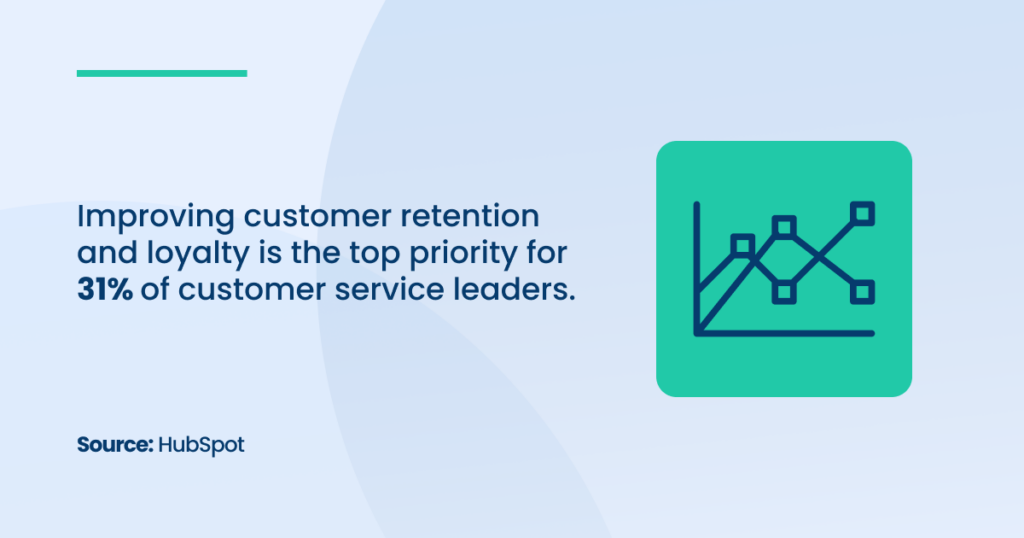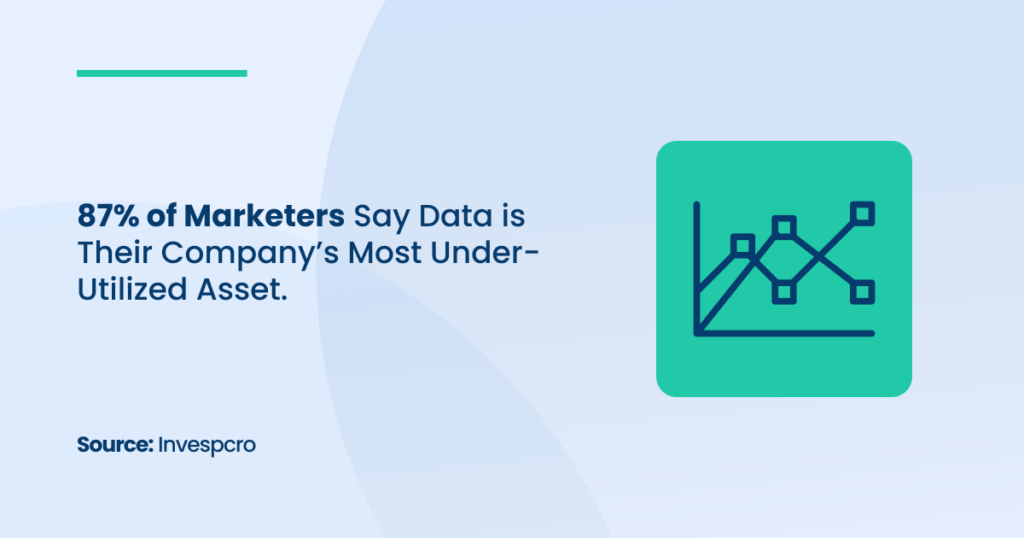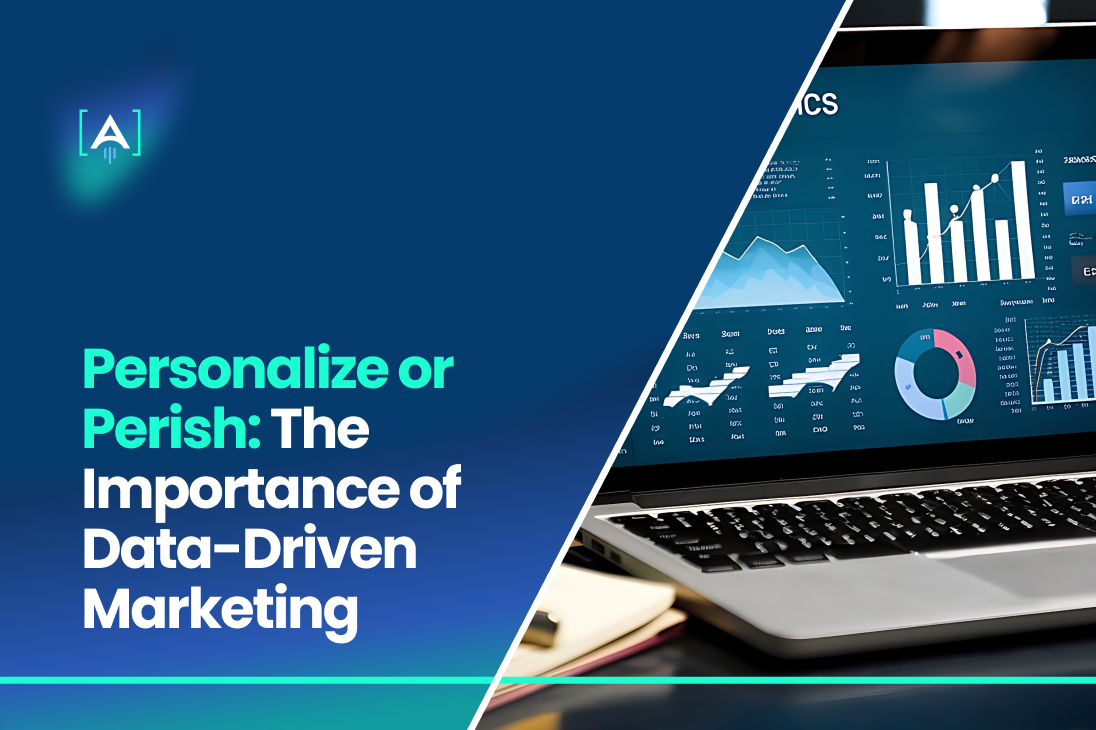In today’s competitive world, where consumers see many marketing messages, it’s tough to stand out.
Generic marketing doesn’t work anymore.
Advertisements appearing on your screen that perfectly align with your interests – this is the power of data-driven marketing.
Accordingly, businesses must use a data-driven approach to connect with customers and achieve results.
Supporting this, Statista highlights that the global big data market is forecasted to grow to 103 billion U.S. dollars by 2027.
Source: Big data market size revenue forecast worldwide from 2011 to 2027, Statista
This substantial investment stresses the importance businesses attribute to data’s role in guiding marketing strategies.
This approach underscores why many are turning to a Fractional CMO Agency to harness this potential effectively.
This blog post will explore the essence of data-driven marketing and how it can help businesses thrive in today’s competitive landscape.
What is Data-Driven Marketing?
36% of marketers said data is essential for reaching target audiences and understanding customers, while 32% said investing in it boosts marketing ROI.
Accordingly, data-driven marketing is a strategy that focuses on leveraging collected data to better understand and engage with target audiences, optimizing marketing efforts to enhance customer experiences and business outcomes.
Source: Mckinsey Report
Personalization is key in today’s marketing landscape, and effectively leveraging data can result in significantly more precise and impactful marketing strategies.
The Role of Customer Data in Data-Driven Marketing
Customer data is at the heart of data-driven marketing. This data can include a wide range of information, from basic demographic details to more intricate data points like purchasing behaviors, browsing patterns, and social interactions.
Marketers can create highly tailored and effective personalization marketing strategies by collecting and analyzing this rich dataset.
A customer data platform (CDP) is integral in managing this information. It provides a centralized hub where all customer data is stored and processed.
This consolidation enables marketers to create a unified customer profile that can be accessed and utilized across various marketing platforms to streamline personalization efforts.
The Impact of Personalization
The impact of personalization in marketing is profound and far-reaching, enhancing customer relationships and driving business growth.
The global revenue of customer experience personalization and optimization software is projected to surpass 9.5 billion U.S. dollars by 2024.
Source: Customer experience personalization and optimization software and services revenue worldwide from 2020 to 2026, Statista
Personalization, rooted in data-driven personalization and personalization marketing, has evolved beyond mere tactics to become a central strategy in contemporary marketing approaches.
Enhancing Customer Experience
Personalization has a transformative effect on customer experience. Personalized content and personalized marketing campaigns ensure that messages resonate more deeply with individuals, addressing their specific needs, preferences, and pain points.

This approach improves engagement and significantly enhances customer satisfaction and loyalty.
For instance, an omnichannel marketing strategy that integrates personalized interactions across all touchpoints can create a seamless customer journey, thereby deepening the customer’s connection with the brand.
Moreover, understanding consumer behavior analytics is crucial in this context.
Metrics of Success
To gauge the effectiveness of personalized marketing, businesses rely on various metrics that reflect the performance of their campaigns.
Key Performance Indicators for Personalized Marketing Campaigns
- Conversion Rates: An improvement in conversion rates is one of the most direct indicators of the success of personalized marketing.
By targeting users with personalized content that caters to their specific needs and interests, businesses can significantly increase the likelihood of converting prospects into customers.
- Customer Retention Rates: Data-driven personalization strategies are key in boosting customer retention.
Personalized experiences make customers feel valued, which fosters loyalty and encourages repeat business.
- Average Order Value: Personalized marketing often leads to an increase in average order value.
Customers are more likely to purchase when offers and recommendations align with their preferences and previous buying behavior.
- Customer Lifetime Value (CLV): Personalization efforts increase CLV by enhancing customer satisfaction and retention.
A higher CLV indicates that customers engage more deeply with the brand over time.
- Return on Investment (ROI): The ROI from personalized marketing campaigns provides insight into the profitability of investing in personalized marketing and data-driven strategies.
It helps businesses understand the financial impact of tailoring their marketing efforts to individual customer profiles.
Effective use of these KPIs requires robust data security measures to protect the data collected.
Data security complies with legal standards and builds trust with customers, reinforcing their willingness to share personal information.
Integrated Marketing Solutions
In today’s competitive landscape, integrated marketing solutions play a pivotal role. They combine various aspects of digital marketing — from email to social media — into a unified strategy centered around personalized customer experiences.
This integration ensures consistency across all channels, key to building a coherent brand image.
Personalization also contributes to competitive differentiation. In markets saturated with generic advertising messages, personalized marketing stands out, providing a unique value proposition to customers.
This differentiation is critical for brands aiming to establish a strong presence in their industry.
Market Segmentation Analysis
Market segmentation analysis is essential for effective personalized marketing.
Businesses can tailor their marketing efforts more precisely by segmenting the market based on detailed demographics, behaviors, and preferences.
This tailored approach ensures that marketing resources are spent targeting the individuals most likely to respond, thereby increasing the efficiency of marketing campaigns.
The role of a fractional CMO or CMO as a service becomes crucial here.
These professionals bring strategic expertise in leveraging market segmentation analysis to tailor marketing strategies to each segment’s needs.
They help businesses implement high-level marketing strategies without needing a full-time executive, making expert guidance accessible and cost-effective.
Implementing Data-Driven Personalization
Implementing data-driven personalization is essential for modern marketing strategies that enhance customer experience and maximize customer loyalty.

This approach involves collecting, analyzing, and applying customer data strategically to tailor marketing efforts that resonate more deeply with individual consumers.
Collecting the Right Data
- Quantitative Data Collection: Quantitative data, including website traffic, conversion rates, and engagement metrics, is critical for understanding customer behaviors at scale.
Techniques like surveys and analytics tools can help gather quantitative data efficiently.
Ensuring this data is collected from multiple channels enhances its comprehensiveness and usefulness.
- Qualitative Data Collection: Qualitative data provides deeper insight into the customer’s experiences and feelings. Methods like customer interviews, feedback forms, and social media interactions are valuable.
This type of data helps to understand the motivations behind customer behaviors, providing a richer context for the numbers.
Ensuring data integration across all platforms where customer interactions occur is essential for both data types. This integration allows for a unified view of the customer journey, essential for effective personalization.
How to Apply Insights to Marketing Strategies
Personalized Content Creation
- Use insights gained from data analysis to create personalized content that addresses the specific needs and preferences of different segments.
This targeted approach enhances customer experience and increases the relevance of the content, leading to higher engagement and conversion rates.
Lifecycle Marketing Automation
- Implementing automation tools that trigger actions based on customer behavior can significantly improve efficiency. For example, suppose data shows customers tend to repeat purchases within three months.
In that case, automation can be set up to send a reminder or offer right before this period to retain customers.
Multi-Channel Coordination
- Ensure that the insights are applied consistently across all channels. For instance, if data shows that a customer prefers communicating via email rather than social media, tailor your engagement strategies accordingly.
This ensures a seamless and enhanced customer experience, as the customer receives personalized interactions where they are most active.
Challenges and Considerations
Implementing data-driven personalization and personalization marketing comes with its set of challenges and considerations. These range from ethical concerns and technical barriers to keeping up with the rapidly evolving marketing technologies and practices landscape.
Understanding these challenges is crucial for the effective implementation and optimization of data-driven strategies.
Privacy and Ethical Concerns
Data Privacy Regulations
Navigating the complexities of data privacy regulations is a fundamental challenge in data-driven personalization. Businesses must comply with various legal frameworks, such as GDPR in Europe and CCPA in California, which govern the use of personal data.
Compliance not only ensures legal integrity but also builds trust with customers, reassuring them that their data is handled securely and responsibly.
Ethical Use of Data
Beyond compliance, ethical considerations play a crucial role in personalization marketing. Businesses must decide how much personalization is too much, as overly invasive practices can lead to customer distrust and brand damage.
Ethical data use also involves transparent communication about how customer data is collected and used. This transparency fosters a positive relationship and maintains customer loyalty.
Utilization of First-Party Data
First-party data, collected directly from customers with their consent, is becoming increasingly important due to its reliability and compliance with privacy regulations.
Using first-party data for personalization minimizes reliance on less secure or ethically dubious third-party data sources, enhancing data privacy and the quality of insights.
Overcoming Technical Barriers
- Integration of Data Sources: One of the significant technical challenges is integrating disparate data sources. Data from various touchpoints must be integrated seamlessly to create a comprehensive view of the target audience.
Solutions include implementing robust data integration tools that can aggregate, cleanse, and consolidate data from multiple sources, ensuring that the data is accurate and usable for personalization.
- Scaling Data Analytics: As businesses grow, so does the volume of valuable data. Scaling data analytics capabilities to handle increased data loads without compromising speed or accuracy is crucial.
Cloud-based analytics platforms can provide the scalability needed for expansion, facilitating real-time data processing and insights lead generation optimization.
- Ensuring Data Quality: Poor data quality can sabotage even the most well-planned data-driven personalization efforts. Regular audits and updates of data sources, along with the implementation of automated tools for data cleansing and enrichment, are essential to maintaining high-quality data.
These practices help minimize errors and ensure that the decisions made on data analytics are based on reliable information.
Partner with [A] Growth Agency for Your Data-Driven Marketing
Data-driven marketing is no longer a luxury. It’s a necessity for businesses looking to succeed in today’s competitive landscape.
Remember, the key to successful data-driven marketing is not just collecting data but using it effectively.
By implementing strategies gained from data analysis, businesses can optimize their marketing efforts and improve customer satisfaction for sustainable growth.
[A] Growth Agency will be your partner in the process. Our experienced team will design the Growth Roadmap encompassing the vision, strategy, and tactics your business needs to grow.
Excellence is our standard. Every effort we make aims to surpass the expectations of those we serve, ensuring that quality, innovation, and integrity define every aspect of our work.
So, don’t wait.

